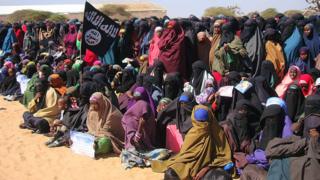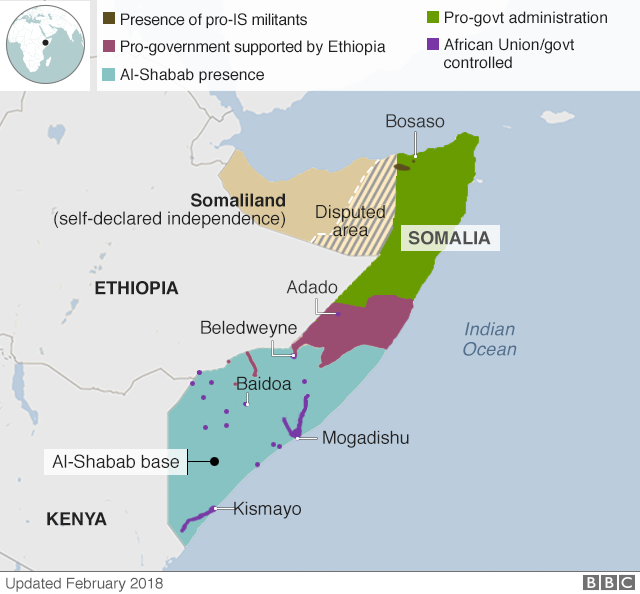 Image copyright PA
Image copyright PA When females make the news since of terrorism, the focus has actually frequently been on their function as victims or as possible allies in countering the hazard.
By contrast, ladies who participate in and assistance extremism have actually in some cases been ignored.
This altered when runaway teenager Shamima Begum was referred to as the “poster lady” for Islamic State after being located at a Syrian refugee camp .
Four years back, she left the UK with 2 buddies to sign up with IS, however declares she was “simply a homemaker”.
Nevertheless, the UK house secretary removed her of UK citizenship , stating: “If you back horror, there should be effects”. She is set to be given legal help to appeal the choice.
Women in extremism
Ms Begum’s case has actually raised a variety of concerns on ladies’s ready and active involvement in violent extremism both in IS and other groups.
Rusi analysis recommends that 17% of extremist employees in Africa are ladies, while different research study has actually suggested 13% of IS foreign employees in Iraq and Syria are female. The precise figures stay unclear and might be far greater.
 Image copyright Met Police
Image copyright Met Police A variety of Rusi-backed research studies and others have actually examined the functions females play in organisations such as IS and al-Shabab, among the most dangerous militant groups in Africa .
Researchers talked to females who had actually been straight or indirectly included with al-Shabab’s activities, to discover how they were hired, and the effect that participating in violent extremist activity has on ladies.
The work was performed by academics in Kenya, who had the ability to utilize their enduring experience and networks within neighborhoods recognized to be at threat of radicalisation.
IS v al-Shabab
The functions played by ladies differ in between groups.
Women in al-Shabab have actually typically held what might be viewed as more standard functions, as other halves of fighters and domestic assistance. They are likewise in some cases made to work as sex servants .
They can likewise assist draw in brand-new members. One research study in Kenya found ladies were tempted by others who guaranteed them tasks, financial backing and counselling.
For example, Hidaya (not her genuine name), a dressmaker, was hired by a customer who used to buy and broaden her organisation. She was encouraged to take a trip to a border area, from where she was smuggled into Somalia.
 Image copyright Getty Images
Image copyright Getty Images Within IS, females frequently hire – particularly online – and play an active function in predicting the group’s beliefs.
In Shamima Begum’s case, her recruitment might be seen by IS as a propaganda success , in spite of her recommendation that she had actually done little bit more in Syria than look after her other half and kids.
Women under IS are likewise permitted to function as physicians and health care employees, with specific limitations, while the group has an all-female morality police .
More just recently, as the group lost its area in Iraq and Syria , it has actually wanted to put ladies in frontline functions, utilizing its paper al-Naba to call ladies to jihad , and launching a video in 2015 revealing numerous in battle in Syria.

However, distinctions in between groups have actually ended up being progressively blurred as organisations end up being “influenced” by each other.
In Somalia, where al-Shabab is trying to develop an Islamic state governed by Sharia (Islamic law), cases of female frontline or suicide fighters have actually likewise been seen .
Analysis of al-Shabab suicide attacks in between 2007 and 2016 discovered 5% were performed by females.
This is likewise the case in other parts of Africa, such as Nigeria where militant Islamist group Boko Haram has pre-owned ladies as suicide bombers .
- Who are Somalia’s al-Shabab?
- After the caliphate: Has IS been beat?
- How do you deradicalise somebody?
- Islamic State: The kids and ladies no-one desires
Why do females sign up with jihadist groups?
There are a variety of aspects driving females’s recruitment into these groups.
To a level, it appears that what inspires guys likewise works for ladies, such as the pull of strong ideology and monetary advantages.
However, techniques intended particularly at females likewise emerged, such as the appeal of going back to conventional gender functions.
For circumstances, among our research studies showed al-Shabab employers took advantage of the insecurities of some young Muslim females who feared that college would postpone their marital relationship potential customers.
“If I get a guy who will wed and safeguard me, why should I worry myself with research studies or education?”, one Nairobi University trainee asked scientists.

Others appear to have actually been at first brought in by guarantees of tasks, loan and other chances.
However, critical their intentions for signing up with is hard. Much of the ladies we talked to declared they had actually been hired versus their will.
Like Shamima Begum, some declared they either weren’t actively associated with the group’s activities, otherwise participated versus their will. Some state they were victims.
While some are most likely to have actually been persuaded in some kind, rejecting duty is a helpful method to attempt to reintegrate back into the bigger neighborhood.
- Why understood extremists can perform horror attacks
- The odd normality of life in a breakaway state
- The normal individuals making the world more conservative
The roadway to rehab
There are a variety of rehab techniques used to previous or returning fighters, however couple of that are intended particularly at ladies.
Policymakers and security services require to take the particular concerns ladies leaving extremist organisations have into account when developing avoidance, reintegration and rehab techniques.
For example, lots of will have had kids with missing or dead fighters, while others will need counselling for injury coming from rape and sexual attack. When engaging with the female function in violent extremism, #peeee
It is crucial that federal governments attend to these concerns. This would begin with much better understanding of how gender-based distinctions fuel ladies’s participation and the particular effect it has on their lives.
This would benefit their neighborhoods by handling the threat they provide and assisting to avoid more females from signing up with extremist groups.

About this piece
This analysis piece was commissioned by the BBC from professionals working for an outdoors organisation.
Martine Zeuthen leads and is an anthropologist Rusi’s EU-funded Strive program , which intends to decrease extremist recruitment and radicalisation in the Horn of Africa.
Gayatri Sahgal is a research study supervisor at Rusi.
The Royal United Services Institute (Rusi) is an independent think tank specialising in defence and security research study.

Edited by Eleanor Lawrie
Read more: https://www.bbc.co.uk/news/world-47653190


Recent Comments